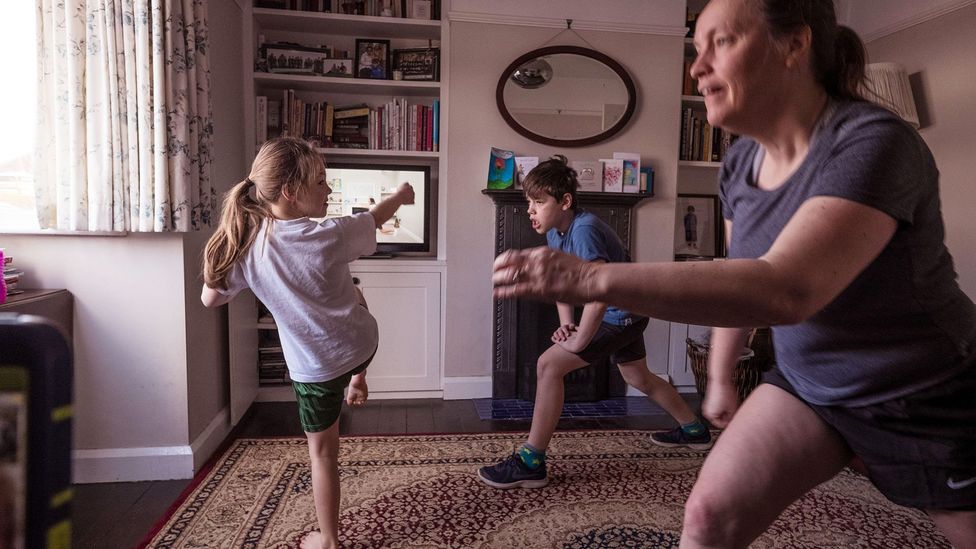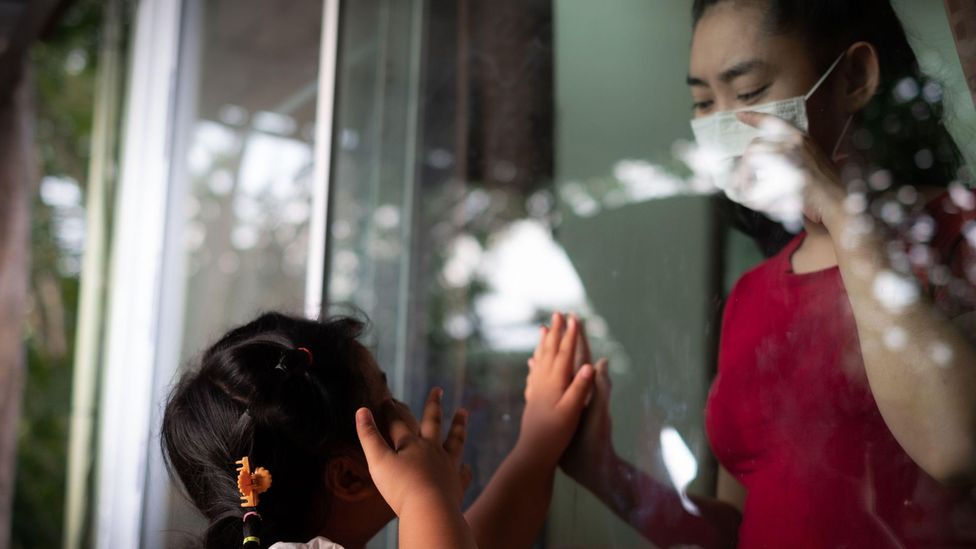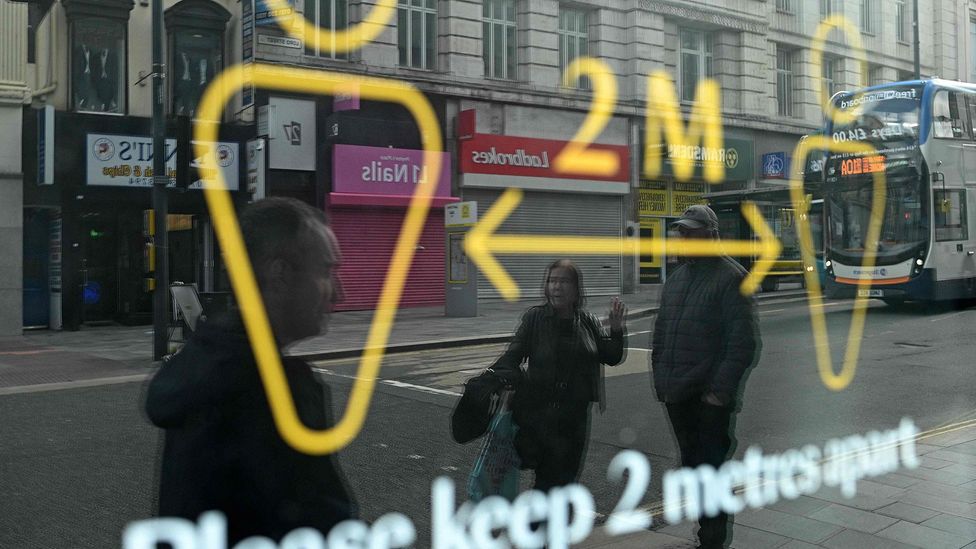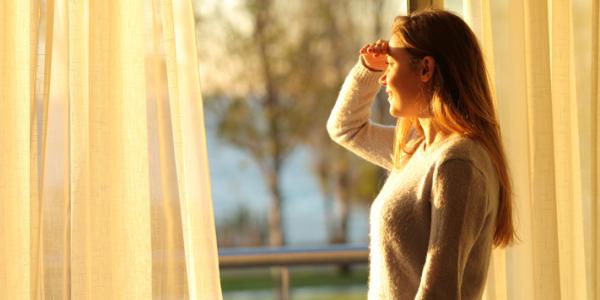COVID's Life Disruptions
 |
| People's daily routines have been severely disrupted by the pandemic, which over time can lead to new ideas of what is normal |
"When the only stories you hear [are] about the people that aren't doing what they're supposed to do, and are constantly messing up and making things worse and so on, it makes people forget that that's a very small proportion of the actual populace, and that actually they are the exceptional cases rather than the norm.""People don't get enough recognition for that [their adherence to distancing, mask-wearing, etc.], and I think that's a bit of a problem."Simon Bacon, professor, Concordia University, co-director Montreal Behavioural Medicine Centre"This [trust in state institutions associated with fewer COVID-19 deaths; social trust and group belonging linked to more fatalities] is likely because trust and affiliation with others are incongruent with physical distancing measures. So you can't see COVID-19.""And trusting that your neighbour, trusting that your best friend, trusting that your family members are engaging in behaviours that reduce the risk of transmission may increase virus transmission."Michael Wohl, psychology professor, Carleton University"I explain what happens to me through circumstances and I explain what happens to you through character. That could lead you to chalk up someone else's failure to wear a mask to their being lazy, for example, while excusing your own decision not to wear one as a one-off, resulting from pandemic-related exhaustion.""We have to be so careful of this kind of storytelling where the non-compliance gets told as a personal deficiency.""It's not just disseminating knowledge or instructions, but asking the tough questions about how realistic it is for people to follow advice.""In our planning, we have to anticipate that this is going to happen with a pandemic this long. The instructions that make sense early in the pandemic when people see this as a big threat and a scary thing, and people are energized to fight it, we're going to need different resources and different supports as it drags on.""We need to acknowledge that everyone's going to get tired, and figure out how our interventions can account for and accommodate for that fatigue."Eric Kennedy, associate professor of disaster and emergency management, York University

The percentage of Canadians reporting wearing face masks outside their homes between March and July most of the time, rose from two percent to 54 percent. Simon Bacon is at work on an international study of COVID-19-related attitudes and behaviours based on data from close to 14,000 Canadians who participated in a study between March and mid-September -- over 80 percent have been consistently handwashing and physical distancing since the beginning of the pandemic.
A fairly high ratio of compliance. And Dr. Bacon feels that 80 percent should be recognized for their steady reliability as a functional base of people who engage not only in safeguarding their own health but that of their community. As opposed to the quite small number of people comparatively speaking, who appear to believe that rules are made for others to follow and they have no obligation, social or ethical to be a part of that compliant majority. Many among them believe that the pandemic represents a scare-tactic on the part of government to bring people to heel.
Messaging focused on most people dedicating their efforts to sound virus-aversion practices is seen by Dr.Bacon as a reinforcing tool that validates the morality of continued behaviour that becomes normalized. Rather than risk people beginning to question why they should continue making an effort when others fail to. He speaks of consistent policy as a byword for public acceptance. In Quebec, he says as an example, people are not permitted visitors in their home from another address in the province's COVID red zones. On the other hand, up to 25 people are able to gather at places of worship.
 |
| Social distancing has meant that people have had to get along without the usual daily face-to-face contact with friends, family and colleagues |
"What people then invariably do is they start defaulting to their personal perspective, their personal values. Do they think this is important? Do they think they should be doing this?"
Researchers at McGill and Carleton universities examined data from dozens of countries, to discover that while trust in state institutions was associated with fewer COVID deaths, social trust and group belonging were linked with greater numbers of fatalities.
And according to Dr.Wohl, one of the study's authors, with COVID-19 case and death numbers -- the anonymity behind the numbers, the de-personalization of the sheer numbers of victims -- growing steadily in numbers results in insensitivity within the population formerly personally empathizing; they become too distanced from the reality that simply overwhelms them.
Dr. Kennedy speaks of the necessity of clarity and consistency in messaging along with the importance of transparent explanations why messaging may change, when it does, along with modelling oneself the very behaviour being asked for the public. The message is more advantageously received when a service is more readily accessed. As for example asking people to get themselves out to testing facilities when symptoms arise, but testing centres have limited operating hours or fail to be conveniently located for easy access, taking a prolonged time to complete.
Another critical issue is the tendency of people to begin to succumb to COVID-inspired fatigue. Acclimatizing to threats that become incorporated as part of routine environment.Those new routines can become difficult after time has passed, to continue along with, given their inconvenience and become life-stressors.
Changed work conditions, childcare disturbances, all take a psychological toll to match the physical toll. In current conditions what people once thought of as routine and predictable has undergone a complete transition, a crisis-forced change, one that disturbs their sense of resilient accommodation because it is unrelenting and intrusive in their lives. People despair over that elusive 'light at the end of the tunnel'.

Labels: Coping, COVID-19, COVID-Fatigue, Disruptions, Face-Mask-Wearing, Routine, Social Distancing

0 Comments:
Post a Comment
<< Home